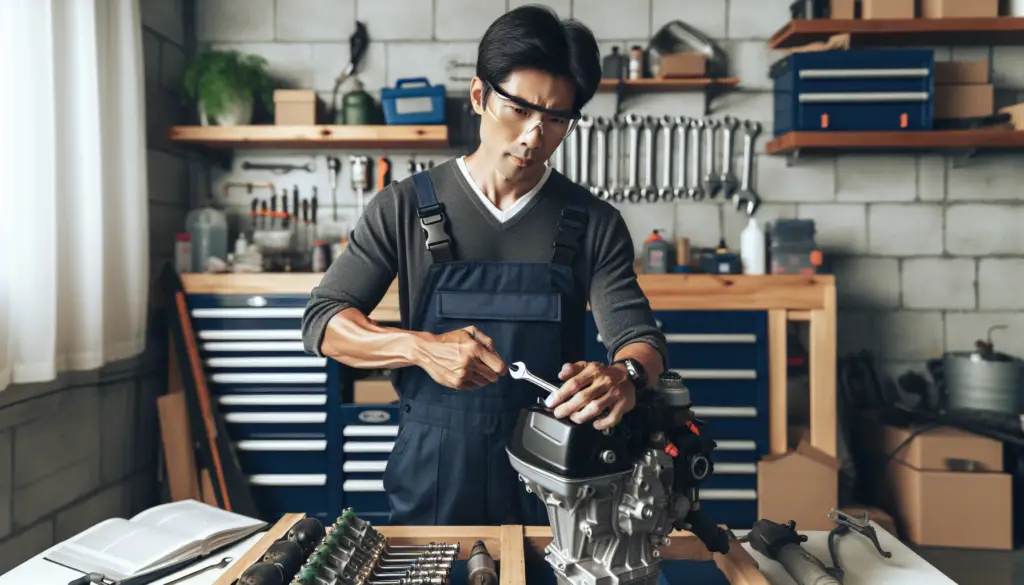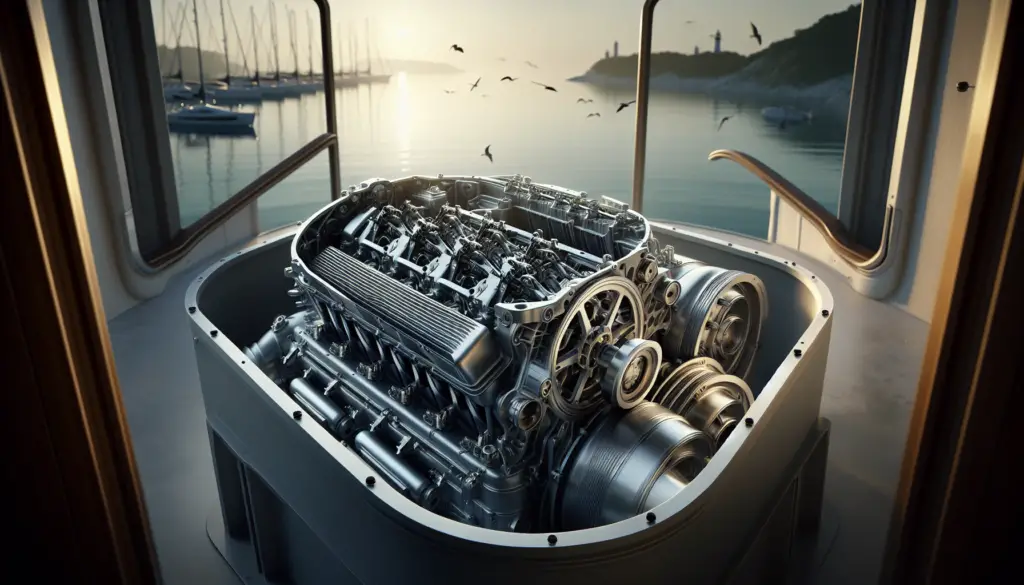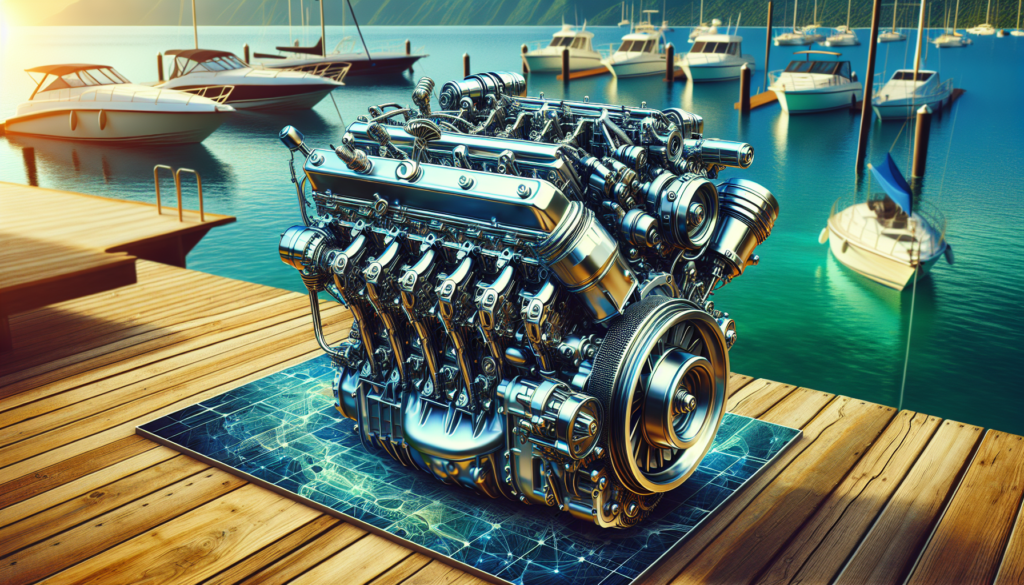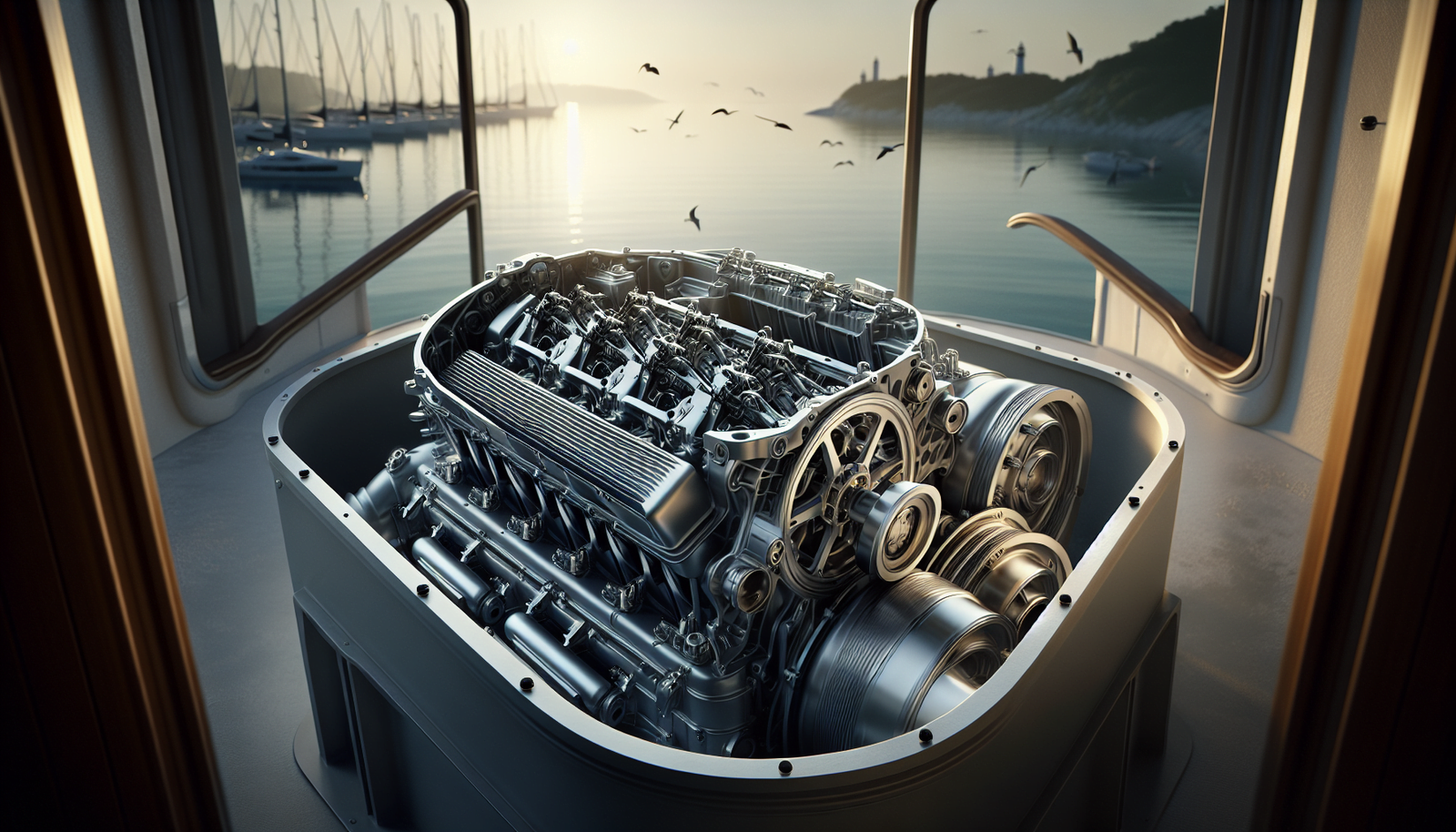Are you a boat owner who is just starting to plunge into the world of marine engine maintenance? In this article named “What Are The Essential Boat engine maintenance tips for beginners?”, key tips for basic boat engine care are outlined explicitly. Detailed instructions for starters include regular check-ups, learning about the gear, and understanding how to spot potential issues before they become disastrous. By the end of this enlightening article, you’ll be confident enough to handle your boat engine’s maintenance like a seasoned professional!
Understanding Your Boat’s Engine
Before diving into the specifics of maintenance, let’s get a general understanding of your boat’s engine. It’s a crucial component that provides power for your boat. Without it, your boat would literally be up the creek without a paddle.
Types of Boat Engines
There are various types of boat engines and it’s important to understand the one you own. The most common ones are the outboard motor, which is an engine system installed at the rear of the boat, and the inboard motor that’s placed inside the boat’s hull at the center. There’s also the sterndrive engine, often referred to as an inboard/outboard motor, which is a hybrid of the two.
Key Components of a Boat Engine
The key components of a boat engine are generally the same across all types. These include the engine block, pistons, propeller, and exhaust system, to name a few. One important component you should be intimately familiar with is the combustion chamber – this is where fuel and air mix, ignite, and provide the power.
Basic Operation of a Boat Engine
The basic operation of a boat engine starts with the ignition of the fuel-air mixture in the combustion chamber. This burns explosively and pushes the pistons. These pistons then turn the crankshaft which ultimately turns the propeller and moves the boat forward. The exhaust gases are expelled through the exhaust system.
Importance of Regular Boat Engine Maintenance
“You wouldn’t neglect to take your car for a service, would you? It’s the same with your boat engine.”
Ensuring Optimum Performance
Regular maintenance ensures that your boat engine performs at its best. It keeps the components working as they should, thus preventing any unexpected breakdowns when you’re out on the water.
Extending the Lifespan of Your Engine
A well-maintained engine can last for many years, even decades. Regular maintenance reduces wear and tear, keeping your engine in top condition and extending its lifespan.
Preventing Costly Repairs
By keeping your engine in good shape, you can prevent minor issues from escalating into major, costly repairs. An ounce of prevention is worth a pound of cure indeed!
Maintaining Resell Value
Boat engines are a significant investment and maintaining that investment can pay off if you ever decide to sell. Regular maintenance ensures your engine stays in great condition, maintaining its resell value.

Inspecting the Boat Engine Regularly
“You know what they say about regular check-ups, right? It’s the same with your boat engine.”
What to Look for in a Routine Inspection
In a routine inspection, look for signs of physical damage, corrosions, leaks, worn out belts, or damaged propellers. Listen to your engine for any strange sounds. Check fluid levels including the oil and coolant.
Frequency of an Engine Check-up
As a general rule, you should inspect your boat engine at least once every month. Of course, the more often you use your boat, the more frequently you should check the engine.
Tools Needed for an Inspection
For an inspection, you’ll need a few basic tools such as a flashlight for visibility, screwdriver, wrench, and a mirror for hard-to-see areas. It’s also useful to have a set of gloves and rags for tidying up.
Changing the Engine Oil
“Just like your car, your boat engine needs its oil changed regularly.”
When to Change Engine Oil
It’s important to change the engine oil every 100 hours of operation, or at least once a year if you don’t use your boat that often.
Choosing the Right Oil for Your Engine
Rely on your boat manufacturer’s recommendations when choosing the right oil for your engine. Not all engines need the same type of oil.
Steps to Changing Engine Oil
Before you proceed with changing the oil, make sure to warm up the engine first, as this helps the oil drain more smoothly. Also, remember to have a disposal container ready for the old oil.

Engine Cooling System Maintenance
“That engine gets piping hot, you know. The cooling system helps manage that heat.”
Understanding the Importance of Engine Cooling
Engine cooling is essential in preventing the engine from overheating which can lead to severe damage. Thus, it’s important to keep the cooling system in good working order.
Checking and Maintaining the Coolant Level
Regularly check the coolant level in the overflow tank and top up if necessary, making sure you only refill with the type of coolant recommended by your manufacturer.
Flushing the Cooling System Periodically
Every once in a while – especially at the end of the boating season – it’s a good idea to flush out the cooling system to remove any built-up sediment and ensure the cooling system is clean and effective.
Maintaining the Fuel System
“‘Fuel is the food of your engine. Keep it clean and fresh.'”
Keeping Fuel Clean and Fresh
Always ensure your fuel is clean and fresh. If you’re not going to use your boat for a while, it’s best to fill the tank to prevent condensation and the build-up of harmful deposits.
Checking for Fuel Leaks
Leaks can be extremely dangerous, leading to fires or even explosions. Be vigilant in looking for signs of leaks and seals or hoses that may need replacing.
Replacing Fuel Filters
Fuel filters help to keep debris out of your engine and should be replaced as recommended by the manufacturer or if you notice a significant drop in engine performance.

Battery Maintenance
“‘A dead battery is a no-go. Keeping yours in good shape is crucial.'”
Routine Battery Check-up
Check your boat battery regularly, looking at the electrolyte levels and topping up with distilled water if necessary. Also, ensure the battery terminals are clean and corrosion-free.
Proper Cleaning and Storage of Boat Battery
To clean your battery, you can use a mix of baking soda and water. Remember, during winter storage, the battery should be removed, fully charged, and stored in a cool, dry location.
Replacing Boat Battery when Necessary
A weak or old battery can risk leaving you stranded out at sea. At the first signs of trouble, like your battery not holding a charge, think about replacing it promptly.
Maintaining the Belts
“‘Those belts do a lot of work. Look after them, and they’ll look after you.'”
Checking for Damaged or Worn Out Belts
Regularly inspect the belts for signs of cracking, fraying, or excessive looseness. Remember, a broken belt can leave you stranded just as efficiently as a dead battery or a dry fuel tank.
Properly Adjusting Belt Tension
A belt that’s too tight can cause premature wear on components. Ensure your belt has the right tension as advised in your engine’s manual, or consult a marine mechanic for assistance.
Replacing Belts when Necessary
Should you find your belts showing serious signs of wear or aging, it’s best to replace them promptly. Better safe than sorry.

Propeller Maintenance
“‘A poorly maintained propeller can severely affect your boat’s performance, so pay it the attention it deserves.'”
Regular Inspection of the Propeller
Before every outing, make sure to give your propeller a quick once-over. Look for nicks, dents, or anything that could disturb smooth sailing.
Removing and Cleaning the Propeller
Periodically, remove the propeller and clean it to ensure its smooth operation. Use gentle detergents and water to remove grime or marine growth.
Dealing with Bent Propeller Blades
Bent propeller blades can cause vibration and even damage your engine. If they’re bent or damaged, consider getting them repaired or replaced.
Winterizing Your Boat Engine
“‘Winter can be tough on boat engines. Don’t let it do more damage than it needs to.'”
Why You Need to Winterize Your Boat Engine
Extreme cold can cause all sorts of problems for your boat’s engine. Winterizing protects the engine during these cold months when you probably aren’t using your boat much.
Properly Draining and Cleaning the Engine
As part of winterizing, you’ll want to drain and clean the engine to remove any potential risk of damage due to freezing temperatures.
Using Antifreeze in the Engine
Consider using a non-toxic antifreeze in the cooling system to help protect your engine from freezing temperatures. Make sure you choose a type suitable for your boat’s engine.
There you have it, some maintenance basics to keep your boat’s engine running smoothly in any sailing season. Remember, regular maintenance and timely inspections can save you a lot of trouble and expense later. Safe sailing!

